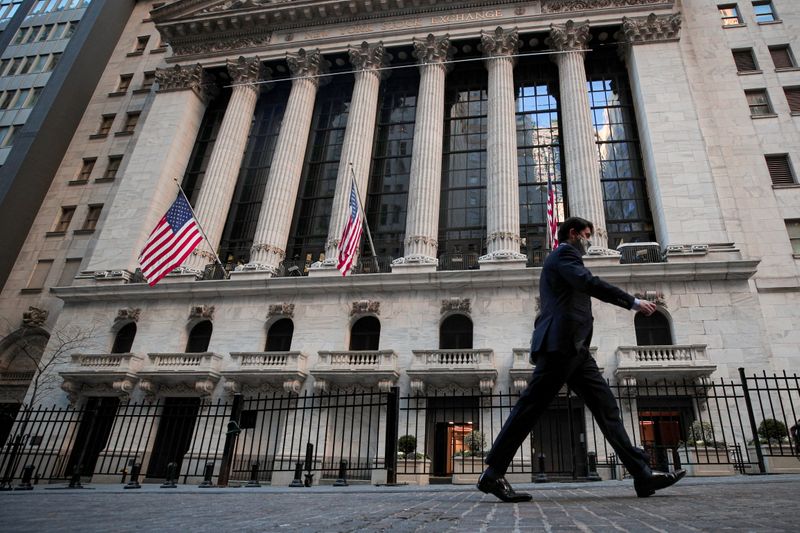Markets shift to price in chance of Democrat Senate wins By Reuters
By Ritvik Carvalho and Wayne Cole
LONDON/SYDNEY (Reuters) – The growing chance of Democratic wins in two pivotal Senate contests on Wednesday triggered financial market moves mirroring hopes of more COVID-19-related stimulus and increased regulatory scrutiny of tech companies.
Analysts generally assume a Democrat-controlled Senate would be positive for economic growth globally and thus for most risk assets, but negative for bonds and the dollar as the U.S. budget and trade deficits may widen further.
In stocks, infrastructure and renewable energy sectors were rising, while the Nasdaq, home to big tech stocks, took a hit.
Early voting results were still very close and Democrats need to win both contests to take control of the Senate, while just one win would see Republicans remain in charge and likely lead to legislative gridlock.
Raphael Warnock, the Democrat seeking to unseat Republican U.S. Senator Kelly Loeffler, held the lead in one of two races, although no major news outlet had projected a winner for either contest.
In line with those assumptions, 10-year U.S. bond sold off, with yields topping 1% for the first time in 9-1/2 months. The dollar fell further to its lowest levels since March 2018, adding to a 13% decline since March.
“U.S. 10 year Treasuries have tipped over 1% yield for the first time in nine months – correctly identifying the potential for greater stimulus which could buoy markets even from their current highs and as a result we have seen inflation expectations start to tick up also,” said Stuart Clark, portfolio manager at Quilter Investors.
For a graphic on https://tmsnrt.rs/35f704y:
https://fingfx.thomsonreuters.com/gfx/mkt/jznpnqammvl/Pasted%20image%201609931427000.png
Democratic control of the Senate would give more scope for President-elect Joe Biden to act on his ambitious agenda, which includes new stimulus and infrastructure spending.
It might also include higher corporate taxes and tighter regulations, policies not typically favoured by Wall Street.
That in turn could increase regulatory risks for banks, healthcare, big-tech and fossil fuel companies, while crimping after tax earnings and EPS valuations.
The risk was enough to see NASDAQ futures down 2% and the Frankfurt-listed shares of Apple (NASDAQ:), Alphabet (NASDAQ:) and Microsoft (NASDAQ:) off 1.5%.
Rising yields outweighed some of those risks in banks with Wall Street’s JPMorgan (NYSE:) and Bank of America (NYSE:) poised for 2% gains at the open, while their European peers rallied hard with the region’s banking index up 4.4%.
Futures for the index – which tracks U.S. small-cap companies – rose 1.7% and were just shy of a record high. Small cap stocks are generally seen as the first to recover as the U.S. economy pulls out of a recession.
European renewable energy stocks – already up since the U.S….
Read More: Markets shift to price in chance of Democrat Senate wins By Reuters

